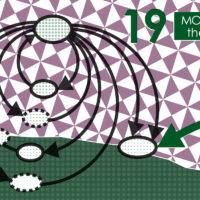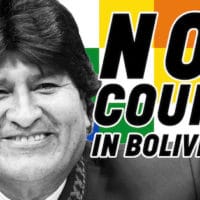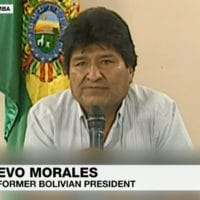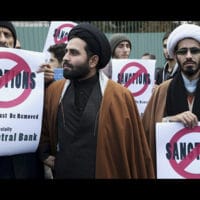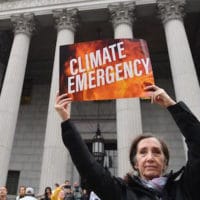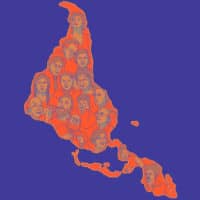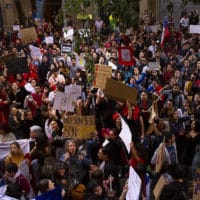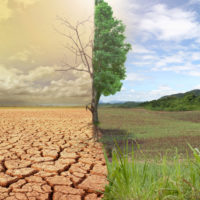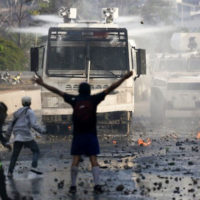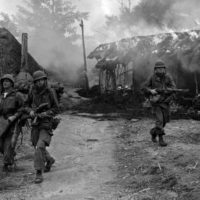-
Why aren’t Americans rising up like we are seeing across the Planet?
We can’t predict exactly what catalyst will trigger a mass movement in the U.S. like the ones we are seeing overseas, but with more and more Americans, especially young people, demanding an alternative to a system that doesn’t serve their needs, the tinder for a revolutionary movement is everywhere. We just have to keep kicking up sparks until one catches fire.
-
MMT & the Art of Social Practice with Vienne Chan (Live)
In this special live episode of Money on the Left, artist and researcher Vienne Chan joins us to talk art, politics, and money—and how Modern Monetary Theory (MMT) reconfigures the boundaries between all three. Recorded at the Third Annual International Conference on Modern Monetary Theory held at Stony Brook University, our conversation focuses specifically on […]
-
Imperialist imprint in Bolivia coup
Imperialist imprint in the just carried out Bolivia coup is visible.
-
Top Bolivian coup plotters trained by U.S. military’s School of the Americas, served as attachés in FBI police programs
Commanders of Bolivia’s military and police helped plot the coup and guaranteed its success. Before they were educated for insurrection through the US military’s notorious School of the Americas and FBI training programs.
-
Public defender Chesa Boudin wins San Francisco D.A. race in major victory for progressive prosecutor movement
Son of incarcerated parents, backed by Black Lives Matter co-founders, Boudin will be the next DA of San Francisco.
-
Evo Morales slams coup plotters for keeping up violence
“Mesa and Camacho, discriminators and conspirators, will go down in history as racists and coup plotters,” Morales said in a tweet early Monday morning.
-
The Wall and General Pyrrhus
A stern, history-based evaluation awakens doubts that, despite the paeans in the world media, the fall of the Berlin Wall was not purely a peaceful revolution, a choice of freedom by the masses, another successful victory for freedom and justice as in past centuries.
-
How U.S. sanctions on Iran are killing innocent people
It is a measure of the fortitude of Iran that—despite these unilateral U.S. sanctions—it has been able to maintain production of medical equipment and drugs. Nonetheless, the Human Rights Watch report should be seen as an alarm.
-
Attacking the Messenger: Profile of Salvadoran political cartoonist Otto Meza
Otto Meza, a calm, bespectacled 46-year-old Salvadoran political cartoonist deals with a whole spectrum of domestic issues. Many of the themes Meza uses to label his cartoons provide a stark overview of the issues facing contemporary El Salvador: “Migration,” “Inequality,” “Corruption,” “Transparency,” “Impunity,” “Historical Memory.”
-
World scientists’ warning of a climate emergency
Most public discussions on climate change are based on global surface temperature only, an inadequate measure to capture the breadth of human activities and the real dangers stemming from a warming planet. Policymakers and the public now urgently need access to a set of indicators that convey the effects of human activities.
-
Nazi-normalizing barf journalism: A brief history
The article was met with howls of protest across Twitter, but among the many apt responses, Bess Kalb’s description (11/25/17) captured my heart and gave me the single most useful phrase of the Trump era: “Nazi-normalizing barf journalism.”
-
Dossier 22: Latin America and the Caribbean: between the neoliberal offensive and new resistances
Critical thought in our current political conjuncture faces a debate about the characteristics of the neoliberal and neofascist offensive and the challenges that these offensives raise. This debate engages three important dimensions: the character of contemporary capitalism, the new monsters that drive it, and the possibility of necessary alternative futures.
-
The political tide sweeping South America won’t accept predatory capitalism
The slogan is pithy—Neoliberalismo nunca más (Neoliberalism Never Again). It was chanted in the streets of Santiago, Chile; it was drawn on the walls in Buenos Aires, Argentina; and in a more sober register, it is mentioned in a seminar in Mexico City, Mexico.
-
Culturalism, Naturalism, and Social Metabolism
The alternative to the social and ecological pathology which is becoming all-pervasive in the socioinstitutional and economic fabric of modern capitalist society is to be found in the development of an appropriate, harmonious relationship between humanity, their productive powers, and nature.
-
Agony and death of neoliberalism in Latin America
After nearly half a century of pillage, outrage and crimes of all kinds against society and the environment, we witness the downfall of the ruling model promoted enthusiastically by the governments of advanced capitalist countries; institutions like the International Monetary Fund (IMF) and the World Bank; and self-righteous intellectuals and establishment politicians.
-
Election rollercoaster
Germany is really riding a rollercoaster these days, but this is no amusement park; there’s lots of suspense but rarely joy – and quite a few politicians are very unwell! Not only politicians!
-
“In terms of the coral reefs and all the dangers to the ecosystems, Mauritius is one of the countries most at risk”
While environmentalist Greta Thunburg was at the UN, John Bellamy Foster, environmental sociologist and editor of the Monthly Review, was in Mauritius to discuss climate change. Weekly had an opportunity to talk with him.
-
Western progressives and the imperialist Inquisition
Military curfews or states of siege have been imposed recently in Guatemala, Ecuador and Chile, with the army deployed to control protests. Western powers give these countries’ right wing governments the benefit of the doubt despite them being guilty as charged.
-
What the Chicago Teachers Union and United Auto Workers strikes teach us
The strikes have enabled the workers to feel their real strength. These two strikes give us a sign of the role the trade unions, the most powerful organizations of working people, will play in the future.
-
United States foreign policy: yesterday, today, and tomorrow
Mapping out the connections between the initiation of the permanent war economy, the drive for US empire, and today’s factional disputes and similarities among political elites.


